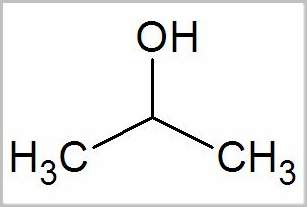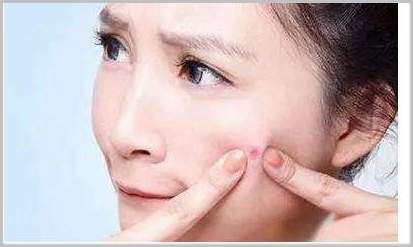Rubbing alcohol is also known as isopropyl alcohol. Its antiseptic qualities are used to kill bacteria and germs. What about it on acne skin? I hate getting breakouts, and I’ve gotten desperate to get rid of pimples and blackheads. I want clear skin like everyone else. I also don’t have lots of money to spend on expensive treatments. Rubbing alcohol is pretty cheap and it kills bacteria. So it seemed like a good idea to use it as an astringent. Why was it a bad idea?

Curious?
Many acne suffers find themselves wondering about rubbing alcohol on acne skin and whether it is an effective form of treatment. After all, it smells medicinal and many consumers assume it would work well as a toner for acne prone skin. Before wiping a cotton swab full of isopropyl on your cheeks, you may want to consider some of the following:
MSDS Classification
The MSDS, or Material Safety Data Sheet, which is a classification system that ranks dangerous chemicals, ranks isopropyl alcohol (or rubbing alcohol) high on the possible list of skin irritants. That means that when applied to the skin, it is shown to cause rashes or dryness, which will irritate a person’s skin further. If rubbing alcohol gets into the eye, it can also cause severe eye pain or even permanent eye damage.
Drying and Irritating
Aside from being listed as a skin irritant on the MSDS, the isopropyl alcohol has proven to dry out the skin upon use. If you have ever used it to wipe or clean a wound, you have most likely noticed how fast the skin dries out once touched by the liquid. If skin is already dry from certain acne treatments, such as benzoyl peroxide or Retin-A, then the alcohol can only further skin dryness from there.
Although it is an antiseptic and excellent for killing bacteria, it seems to take all the moisture out of skin. Alcohol dries skin and is an irritant, especially to sensitive skin. It also seems to make oil glands work overtime to compensate for the extra dryness, making problems worse.
Astringents designed for controlling acne have added ingredients to any alcohol to help reduce irritation and dryness. Finding the right acne treatments can be frustrating, but fortunately there are good methods for treating acne.
Alternatives

Rather than use isopropyl alcohol as a toner, it is recommended that consumers use an astringent toner with ingredients like witch hazel, such as Olay Oil Minimizing Toner. Witch hazel is proven effective at cleansing acne prone skin, but also does not dry out the skin’s surface. Therefore, when you find yourself curious, play it safe and use acne treatments that are available over the counter instead.
Two Products Recommended
- Sea Breeze astringents remove excess oil, makeup, and dirt. There are several different formulas, depending on your needs: Sensitive Skin, Sea Breeze Actives Deep Clean, Actives Clear Pore, and the Naturals line made with sea minerals and botanicals.
- Clean and Clear Deep Cleaning Astringent has maximum-strength acne-fighting medication that is supposed to treat and help prevent pimples. There is also a sensitive skin formula that deep cleans while being gentler.
If You Do Use Alcohol
If you’re wondering about rubbing alcohol for your acne, it can work in a pinch if it’s an emergency. Use it only on a short-term basis. Apply it with a cotton swab, so you target only the pimple, rather than rubbing it all over your face.

